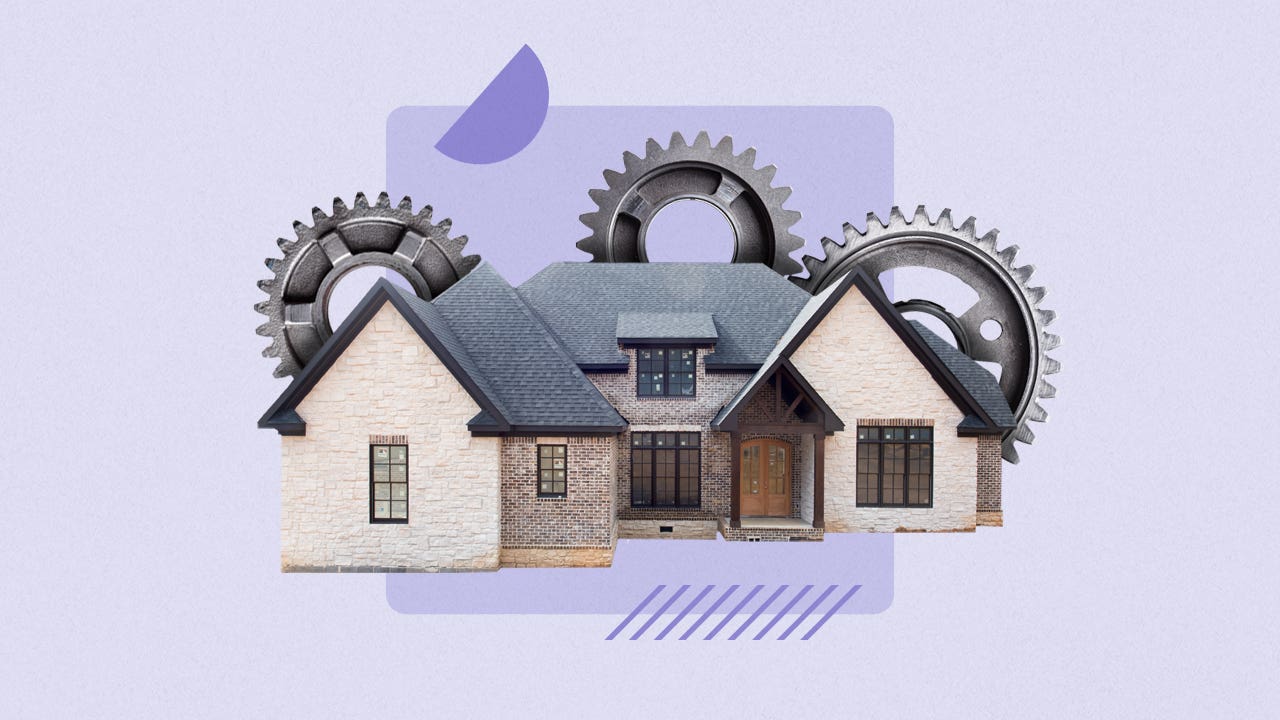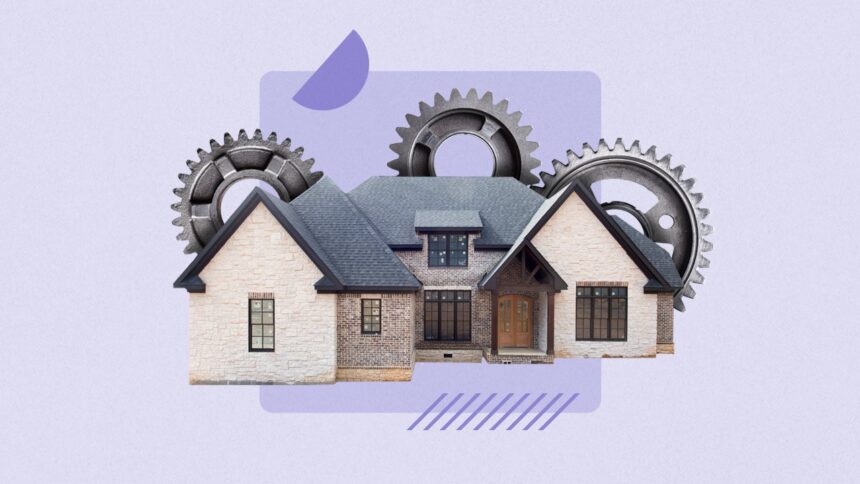
Images by GetTyimages. Illustrations by Hunter Newton/Bankrate
Key takeout
-
An adjustable mortgage (ARM) is a mortgage where interest rates are reset at regular intervals.
-
Weapons have a lower fixed rate at the start, but they are often more expensive once interest rates start to fluctuate.
-
For those planning to sell their home before the fixed rate stage of a loan is over, weapons tend to work best. Otherwise, they need to refinance or can afford a recurring jump in payments.
If you are in the mortgage market, one option you may encounter is an adjustable rate mortgage. These mortgages come with a fixed interest rate for the first term, and then taxes will be regularly up and down for the remainder of the loan period. Arms can be a more affordable way to get into the house, but they have some drawbacks. Here’s how to know if you need to get an adjustable mortgage:
Pros and cons of adjustable rate mortgages
To determine whether this type of mortgage is right for you, consider the advantages and disadvantages of these adjustable mortgages (ARMs).
Advantages of adjustable mortgages
- Decreased adoption rate: Arms often have lower initial interest rates than those of comparable fixed-rate mortgages, at least during the fixed-rate period of the loan. If you plan to sell before the fixed period increases, your arm can save on bundles of interest.
- Reduced initial monthly payments: A lower rate will lower your mortgage payments (at least during the implementation period). You can use your savings for other housing expenses or hide it, and pay for your future and potentially higher.
- Your monthly payments may decrease: If general market rates fall at the time of resetting your arm, your monthly payments will also decrease. (However, some weapons set interest rates and limit how much the rate will drop.)
- It might be good for investors: The arm is attractive to investors who want to sell before the fees are adjusted, or to investors who plan to put their savings in interest on existing payments.
- Refinance Flexibility: If you are nearing the end of your arm’s introductory period, you may choose to refinance to a fixed-rate mortgage to avoid potential interest rate increases.
Cons of adjustable mortgages
- Monthly payments may increase: The biggest drawback (and the biggest risk) of your arm is the chances that your rate will increase. If the fees increase since you took the loan, your payments will increase when you reset your loan. There is a cap for rate increases in many cases, but even so, you can eat up more money than you can use for other financial targets.
- More uncertainty in the long term: If you want to keep your mortgage beyond a first-rate reset, you should plan to afford to pay your monthly payments in the long term. If you pay an affordable price, you can end up facing a default, harmful credit and ultimately foreclosure. If you need a stable monthly payment, or simply cannot tolerate levels of risk, it is best to use a fixed-rate mortgage.
- More complex advance payments: Unlike fixed-rate mortgages, adding additional extras to monthly payments does not significantly reduce the loan term. This is due to the way ARM calculates interest rates. Instead, paying upfront like this will have a major impact on your monthly payments. If you want to shorten your period, you’d better pay in bulk in bulk.
- Qualification can be difficult: It is more difficult to qualify for the arm compared to a fixed-rate mortgage. Traditional fixed-rate loans require a higher down payment of at least 5% and a 3%. Additionally, factors such as credit score, income, and DTI ratio can affect your ability to gain arms.
Interest-only arm
If you choose an interest-only arm, you are guaranteed to see an increase in monthly payments. With this type of loan, you pay interest only for the set times. Once that’s finished, you’ll pay both the interest and the principal. This big sip from your budget could void your interest savings if your rate is adjusted.
Who is the adjustable mortgage?
So why do home buyers choose an adjustable mortgage? Here are some situations where your arm might make sense:
- You are not going to stay at home for a long time. If you know you’ll be selling your home within 5-10 years, you can choose your arm and take advantage of lower fees and payments to sell before the fees are adjusted.
- I’m planning to refinance. If you expect the rate to drop before the arm rate is reset, take your arm out now and then Refinance to a lower rate You can save a lot of money at the right time. However, please note that if you refinance during the introrate period, your lender may charge you a fee to do so.
- You are starting your career. Borrowers soon may also benefit from the initial savings of their arm, knowing they will earn quite a lot over time. Ideally, an increase in income offsets an increase in payments.
- You are satisfied with the risk. If you are supposed to buy a home now with a low payment to get started, whether you are planning on moving or not, you may simply be willing to accept the risk that your fees and payments could rise. “We’re looking forward to seeing you,” said Pete Boomer, head of mortgage loans for a regional bank in Birmingham, Alabama.
Why is your arm so popular now?
In early 2022, few borrowers accounted for just 3.1% of all mortgage applications in January, according to the Mortgage Bankers Association (MBA). Fast forward to June 2025, and that number has more than doubled 7.1%.
Here are some reasons why weapons are so popular now:
- Low interest rate: Weapons are currently at a lower adoption rate compared to the fixed-rate mortgage rate, which remains close to 7% in mid-2025. These low prices give buyers more purchasing power, especially in markets where affordability is a challenge, where home prices remain high.
- Refinance ability: Over the next few years, you can choose an arm to lower your initial fees and reduce your monthly payments to refinance if your mortgage rate drops. You can do it too Refinance to a fixed-rate mortgage If you want to maintain that low fee for the lifespan of your loan. Lenders should check if you would like to charge a refinance during the initial fee period.
- Good options for some young families: According to weapons tend to be popular among young, high-income households with larger mortgages. Federal Reserve Bank of St. Louis. High-income households may be able to absorb the risk of higher payments when interest rates rise, and younger borrowers often have the time and potential earning power to survive the ups and downs of interest trends compared to older borrowers.
Other loan types to consider
Along with your arms, you should consider various loan types. Some people may have more generous down payment requirements, lower interest rates, or lower monthly payments than others. The options are:
- 15-year fixed-rate mortgage: If that’s the interest rate you’re worried about, consider a 15-year fixed-rate loan. Usually it has a lower rate than its 30-year counterpart. You make bigger monthly payments, but reduce your interest payments and pay off your loan faster.
- 30 Year Fixed Rate Home Loan: If you want to keep these monthly payments low, a 30-year fixed mortgage is the way to go. You can pay more interest over the long term, but your payments are more manageable.
- Government-supported loans: If that’s a simple term, you’d long for, FHAUSDA or VA loans often have lower declines and loose qualities.


